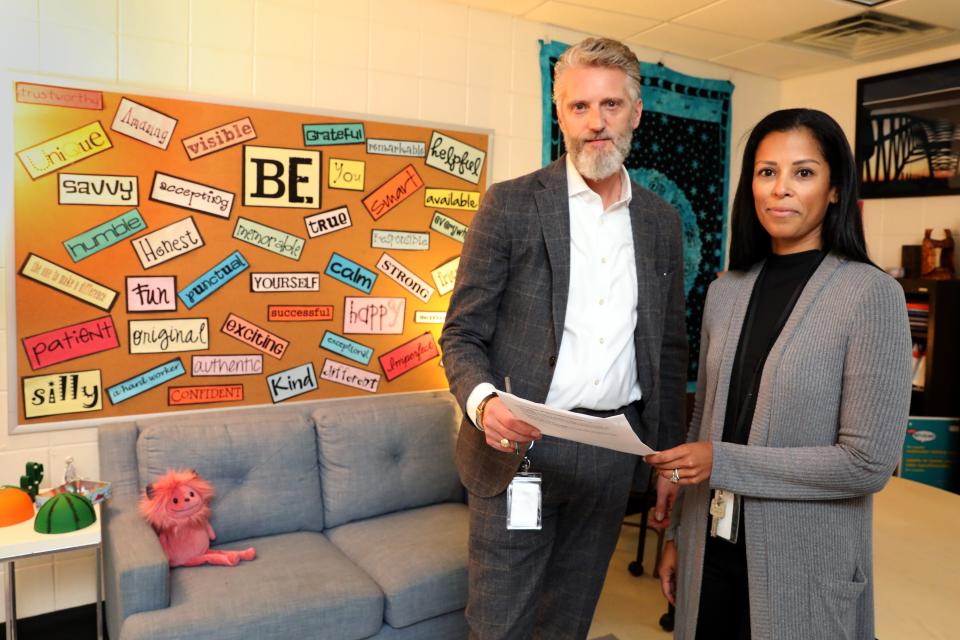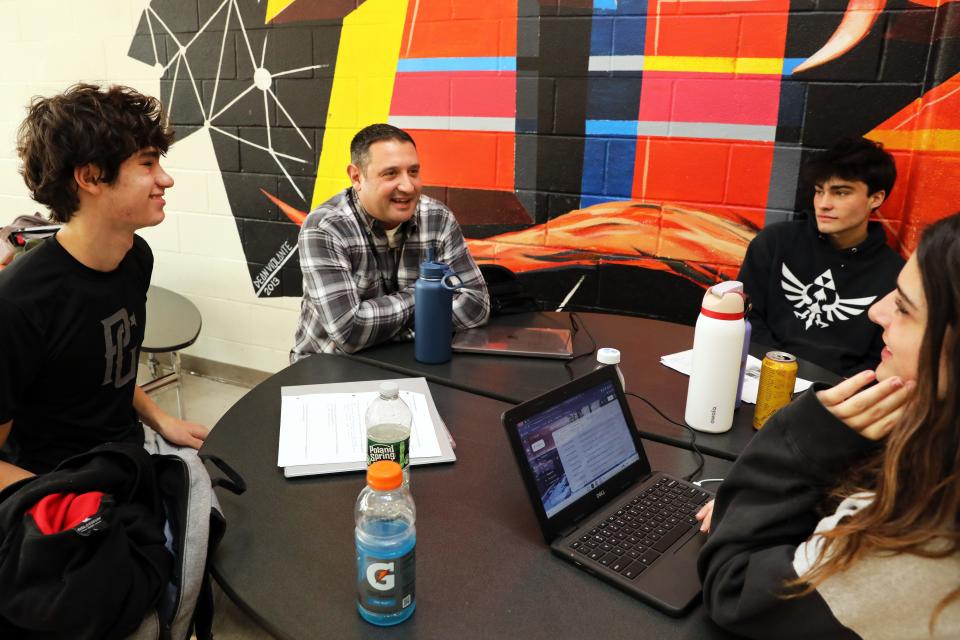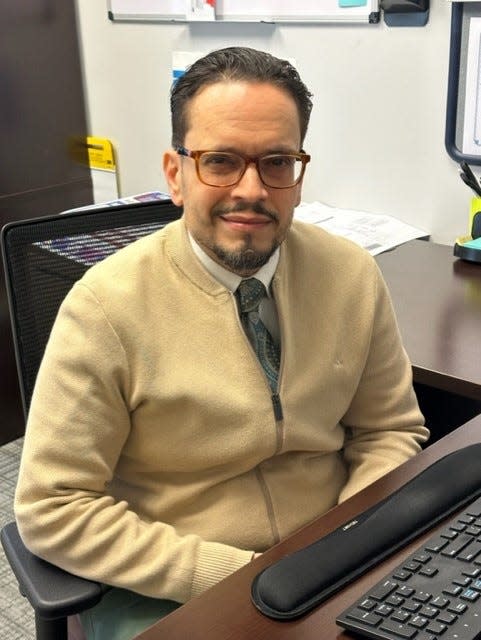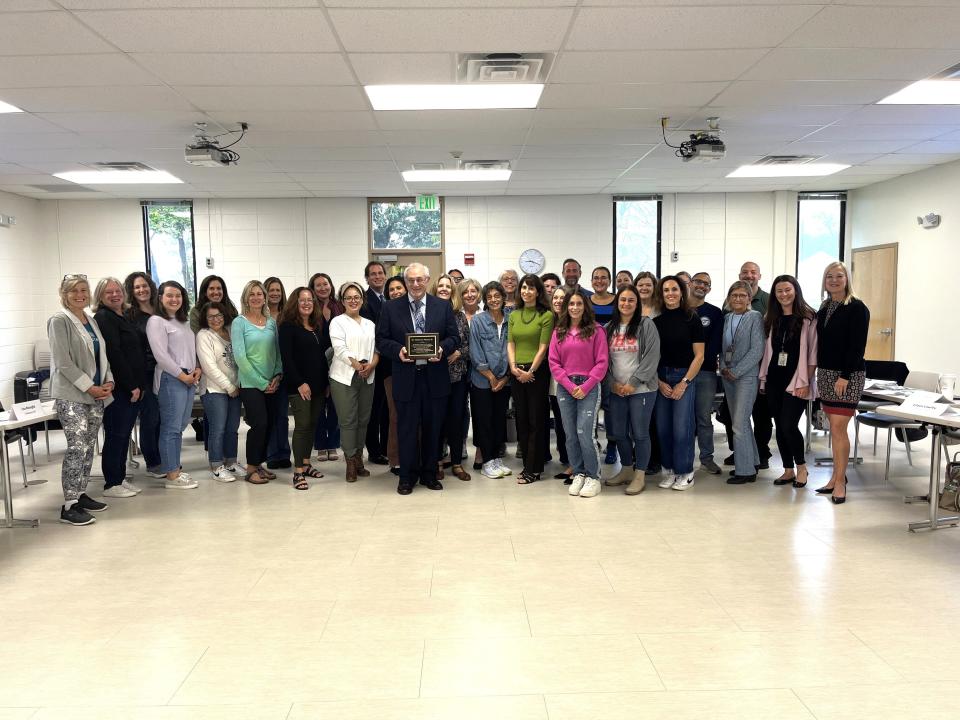These crisis teams help schools respond after a tragedy
When tragedy strikes a school, like when a student or teacher dies, educators face a daunting challenge: helping students and staff deal with the shock and get the support they need.
But no school is equipped with enough counselors and mental health professionals to support every student and staff member at once.
Enter the regional crisis response team.
The Putnam/Northern Westchester BOCES Regional Crisis Team was formed just after the Columbine High School massacre to provide support to schools in the immediate aftermath of a crisis. And it has helped other BOCES throughout the state and a program in Connecticut start similar teams.

Brandon Cruz, supervisor of school safety for Southern Westchester BOCES, learned from Putnam/Northern Westchester's team for two years before helping launch Southern Westchester BOCES' own crisis team this fall.
"It's also nice to know that we have a community of people now, and a network of people now, in this team of districts that we can reach out to," Cruz said.
Southern Westchester BOCES has always responded to districts after a crisis with its own staff. But officials felt a need to have a network of specialists from the region's school districts who would "serve on this team to support a neighboring district if there's a crisis," said Jim Gratto, assistant superintendent for educational services.
Each team currently has about 40 professionals who are ready to respond to crises. Five to 10 members typically respond to a single crisis, depending on the size of the school needing help, said Lynn Allen, Putnam/Northern Westchester BOCES' deputy superintendent.
Both Westchester crisis teams rely on a network of social workers, school psychologists, counselors and other professionals who already work for school districts served by the two BOCES. The teams also include members from other partner organizations, and Putnam/Northern Westchester's team even has professionals who stayed on after retiring.
When a crisis happens — usually the death of a student or staff member — team members go to the district within their BOCES jurisdiction that needs extra support.
Though not structured like the Westchester teams, Rockland BOCES also provides support to its districts under similar circumstances when districts request it. And like the Westchester teams, Rockland BOCES is also able to provide specialized support depending on the nuances of the crisis.
"We can immediately dispatch clinicians and shift resources to make sure students in our districts have the support they need," Scott Salotto, director of communications and governmental relations said in an email.
What a response looks like
The Putnam/Northern Westchester BOCES Regional Crisis Team has been activated to respond to crises at schools 108 days since 2007, when it started tracking its responses. It was on standby another 98 days in case districts needed extra help.
So far, Southern Westchester BOCES' new team has responded twice. And there were another two instances where it provided support without sending members to the school — the teams can advise schools on how to handle a specific crisis or communicate with the school community.
One of Southern Westchester's responses was at Greenvale Elementary School in Eastchester. Principal Joanna Napolitano said the team helped provide support for a week after a crisis, addressing the psychological and emotional needs of students and staff.
"They really embedded themselves in our community," Napolitano said. "I can't say enough about what an incredible group of people they were."
Administrators can also play an important role on the crisis teams by helping with logistical challenges like communication and staffing, said Brian Ladewig, an assistant superintendent in Harrison and a member of Southern Westchester's team.
"I think the most important thing to realize is sometimes the staff itself and the administration of that building is also affected," said Ellen Slater, an Ossining High School social worker on the Putnam/Northern Westchester team. She said administrators welcome the extra help to make sure they're communicating with families and not forgetting anything.
Often administrators don't want to share how affected they are to be strong for their school, said Karin Brenner, a retired Carmel High School social worker.

"Everything happens pretty quickly," said Croton-Harmon school psychologist Eric Rosen. "You get a phone call maybe the night before, and you don't really have all the information, I guess, until you arrive on site."
Then, he said, their training kicks in.
Following the school's lead
A crisis team could set up in the cafeteria and be there for students who need to talk, or meet with staff in the library after school to talk about navigating bereavement, Cruz said. The team doesn't want to take over, but helps wherever they're needed, he said.
That help can look different depending on the age of the students, said Grace Carnevali, a retired North Salem school counselor. In an elementary school, team members make sure kids have an activity, such as drawing or writing something about the person who died on a big sheet of paper.
Sometimes students want to talk about the person who died. Other times, it's quiet, Carnevali said.

School staff that call on the team for help often let the responding team members know of specific students they are most concerned about.
That was the case in one instance when Jeanne McCabe, a retired PNW BOCES social worker, responded to a school and sat with a student who staff members were concerned about. She ultimately let them know the student was at risk of suicide.
Both teams typically respond for just one or two days in the immediate aftermath of a tragedy. Putnam/Northern Westchester BOCES has even responded on weekends and during the summer.
The job isn't getting easier
Team members are trained on how to respond to crises where people experience grief, loss and trauma. Dealing with such circumstances has only gotten more difficult amid a mental health crisis and as school has moved into the technological age.
There has always been mental illness, "but I think it's playing out in a different way now," said Patricia Bragdon, a social worker at John Jay High School in the Katonah-Lewisboro district. Kids are exposed to more violence at a vulnerable age compared to when Putnam/Northern Westchester's team was formed, thanks to the rise of the internet and social media, Bragdon said.

Bragdon described a recent deployment in which she responded to a student death — "the kids got all this information online that they were spreading around school. This was almost before anybody knew anything."
The information was incorrect, Bragdon said.
"It just complicates, even for the school, trying to work through what happened and what's going on with the kids," she said.
Still, team members embrace the challenge and will drop everything to help a school district in need, said Allen at Putnam Northern Westchester BOCES. She described this kind of work as "a calling" for team members.
"There is something about this that is so very special," she said.
Contact Diana Dombrowski at ddombrowski@gannett.com. Follow her on Twitter at @domdomdiana.
This article originally appeared on Rockland/Westchester Journal News: Westchester BOCES crisis response teams help schools after deaths

